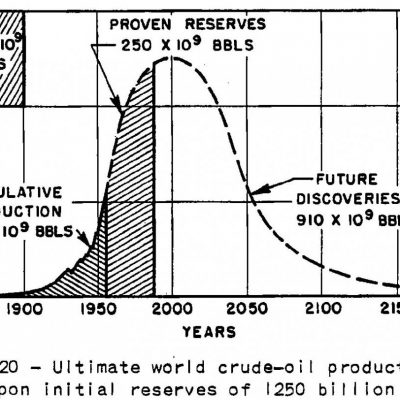 John Gray is a member of Mennonite Creation Care Network who pastors at East Peoria Mennonite Church, East Peoria, IL. In the article posted below, Gray reflects on how cheap fossil fuels have shaped his rural community and wonders what preparations might be necessary in order to prepare for a post-oil future.
John Gray is a member of Mennonite Creation Care Network who pastors at East Peoria Mennonite Church, East Peoria, IL. In the article posted below, Gray reflects on how cheap fossil fuels have shaped his rural community and wonders what preparations might be necessary in order to prepare for a post-oil future.
If you and your congregation would like to think together about these issues, Gray has presentations prepared to share in faith-based settings. Gray’s tentative outline for a weekend includes the film, What a Way to Go: Life at the End of Empire, worship, discussion and two presentations. Consider bringing his prophetic voice to your congregation. Contact John Gray at grayone74@hotmail.com.
Are We Ready for Peak Oil?
By John Gray
In the Western world the nightly news is often filled with reports and dire predictions regarding global warming and climate change, uncontrolled population growth, and pandemic disease. One seldom talked about and seemingly little understood phenomenon looms on the horizon that might potentially overshadow all of these other calamities. What are the consequences to our civilization as we begin to run out of cheap oil? We are faced with a global production peak, the point where the ability to extract.oil begins to contract. The term Peak Oil is attributed to the work of American geologist M. King Hubbert. Hubbert made a number of accurate predictions regarding oil production in the middle of the last century. Calculations based on his research produced the bell shaped curve that is now known as Hubbert’s peak. Basically it states that peak production will come at a point roughly 30-35 years after peak discovery. The United States reached its own oil peak around 1970 with U.S. production in steady decline since then. This production peak was quite accurately predicted by Hubbert much to the surprise of many of his colleagues. Consumption of oil in the U.S. has nearly doubled since that time, however, and now much of the oil that feeds America’s voracious appetite is imported, and much of that from parts of the globe where the U.S. is not very popular.
A short time ago my wife and I drove about the countryside surrounding our rural home and counted a dozen or so farmsteads that are no longer there. This was a real indicator to us that much of our farm community has been displaced. Our small town’s population has dwindled from 1250 to 800 people in less than thirty years. Willow Springs Mennonite Church, a small rural congregation, has seen its membership sharply reduced over this same period and currently counts only about four families who earn their living in agriculture. The point of all this is that over the past several decades, something has created the impetus for this shift in population. Further analysis would reveal that this trend has been accelerating since the end of World War II. The availability of cheap fossil fuels is what has created this population shift. With what appeared to be unlimited supplies of cheap energy, farm machinery grew larger and acreages needed to increase in order to pay for it. Fossil fuels also fed the “green revolution” by providing huge quantities of pesticides, fertilizers and herbicides. As agricultural production grew, so did the world’s population, mirroring the trend begun with the rise of industrialism during the late 19th century. This industrial growth began with coal then burgeoned with the advent of other fossil fuels. As it stands today with the world’s population over seven billion people, we find ourselves enmeshed in a culture that was built on the back of cheap energy and is now totally dependent on a continuing and growing supply of it to maintain the life that most of us in the West have come to expect. Cheap oil was the source of the growth that took place during most of the twentieth century, and it is the primary transportation fuel used throughout the world today. Richard Heinberg is the noted author of such books as The Oil Depletion Protocol: A Plan to Avert Oil War, and The Party’s Over: Oil War and the Fate of Industrial Societies. Heinberg says, “We don’t know exactly when the global peak will happen, but it will almost certainly occur in the early part of this century, and possibly as soon as this year (2005).”
The major difference between this pending oil crises and the oil crises of the 1970’s is that this time it will be a permanent crises which may also exacerbate the consequences of climate change, epidemic disease and overpopulation. Add to this the fact that China is now the number two consumer of world oil. China’s industrialization has made it dependant on oil imports that we in the U.S. also depend on, perhaps setting the stage for future conflict over these resources. The consequence of all this is that we are about to enter a period of potentially great turbulence, government and societal instability, and physical hardship unknown in recent history. As fossil fuel energy depletes, we will be required to downsize, rescale and rethink virtually everything we do. For instance, operations at Wal-Mart and other giant retailers will be jeopardized as their long supply pipeline and just-in-time delivery systems will become severely impacted by the cost of transportation. Agribusiness systems of food production will be jeopardized because of mandatory inputs of petroleum-based fertilizers, insecticides, and of course the energy required to operate many huge farm machines not to mention the cost of shipping the harvest around the country. We will also be impacted in just about every other area of our lives. The cost of using fossil fueled vehicles will become prohibitive. Clean municipal water may be threatened. Heating and air conditioning, the use of electric appliances, computers and communication systems might also be at risk as electric grids dependent on fossil fuels go down.
Obviously, petroleum is not the only source of energy available to us. But most of the experts reviewing the future of a post-oil age seem to agree that there is nothing either presently in existence or in the pipeline that will completely replace the versatility, availability or the energy density of oil. James Howard Kunstler, author of The Long Emergency says: “No combinations of alternative fuels will allow us to run American life the way we have been used to running it, or even a substantial fraction of it. The wonders of steady technological progress achieved through the reign of cheap oil have lulled us into a kind of Jiminy Cricket syndrome, leading many Americans to believe that anything we wish for hard enough will come true. These days, even people who ought to know better are wishing ardently for a seamless transition from fossil fuels to their putative replacements.” Of course there is a place for wind and solar energy in our future. Yes, ethanol and biodiesel will play a part, but none of these separately or collectively can immediately replace the cheap oil we have come to rely on.
The hope of this weekend presentation is simply to help people prepare, however they might, for this coming calamity. We don’t have all the answers by a long shot, but our desire is to help people become aware and then educate themselves going forward. To you as leaders of your congregations who might consider giving time to this presentation, noted author Tom Sine has this to say: “Many leaders in our churches were surprised by the tsunami of the global recession. Since that huge economic tsunami broke on countries all over the planet, we have all become painfully aware of people in our congregations and communities who are still struggling with lost jobs, foreclosed homes and diminished resources…I find a growing number of church leaders don’t want to be blind-sided by this kind of devastating change again. These leaders want to learn to lead with foresight. They are searching for practical resources to enable them to both more effectively anticipate and more creatively respond to other new challenges before they blow up on our doorsteps.”
If you and your congregation would like to think together about how to prepare for a post-fossil fuel future, please contact John Gray at grayone74@hotmail.com. Gray has a weekend outline worked up that includes the film, What a Way to Go: Life at the End of Empire, worship, discussion and two presentations.
As you debate whether or not you might want to have me present this material, please consider that this just might be the challenge that Tom is talking about.
Proposed Schedule of Events re: Peak Oil Weekend
The weekend includes the film, “What a Way to Go,” two talks related to peak oil, oil wars, worship and discussion time.
Saturday Afternoon: around 3pm——————————-Show film, “What a Way to Go”
Saturday early evening. About 5:30pm ————————-Potluck Dinner
Saturday evening about 7:00 pm———————————Short worship service followed by my first talk dealing with presentation of Peal Oil, Oil wars, and related events
Sunday Morning, (if your congregation has Sunday school early)—Sunday school, a discussion re: Mennonite article. (read article (only one page) discuss proposals or action points in article)
Sunday Worship —————————————————–Second talk with emphasis on preparation for coming events.
(If you have Sunday School late this could easily be turned around to accommodate a full discussion following the second presentation)
